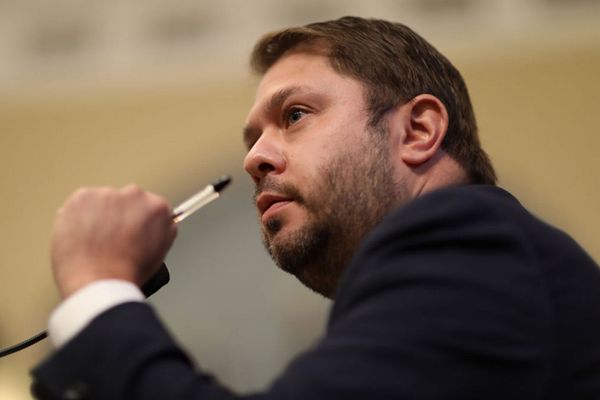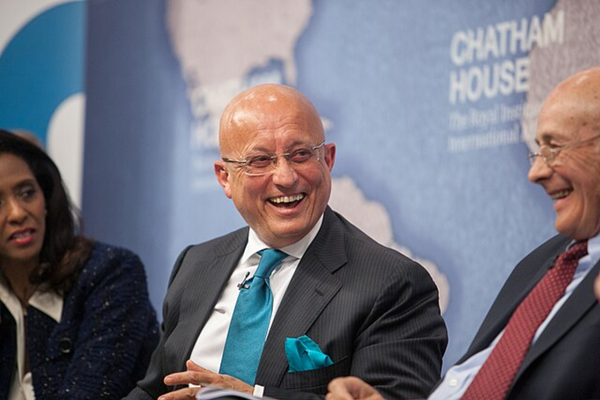Lucy Charles-Barclay is not a household name, and yet she might be the most complete female athlete on the planet. There is no purer sporting test than a triathlon, which makes demands on every muscle in the body, and the Ironman distance takes those demands to ludicrous extremes: running a full marathon after a refreshing 2.4-mile swim and an invigorating 112-mile bike ride, covering the distance from London to Sheffield in eight-and-a-half hours.
Charles-Barclay won the Ironman World Championship in 2023 and broke the record for the iconic Kona course in Hawaii, in which the best long-distance triathletes compete through crystal blue waters and black lava fields. She will be back at Kona in a few weeks’ time to try to regain the title, and the 31-year-old is in the form of her life after an emotional win at her home race in the London T100 last weekend.
Yet the road to this point has been a brutal one, after three years spent battling a series of mysterious injuries from rib fractures to muscle tears to a rip in her hip cartilage, after which she was told she might never race again. She embarked on an investigation into her own anatomy, travelling to Red Bull’s high performance centre near Salzburg to undergo testing. “We really couldn’t find a reason,” she says.
Finally, last year, she received an answer: a diagnosis for Celiac disease, the serious autoimmune condition triggered by gluten. “It was a lightbulb moment. Before a race I would carb load, so I would just eat pizza, pasta, all these things. I was basically poisoning myself before going into a big event.”

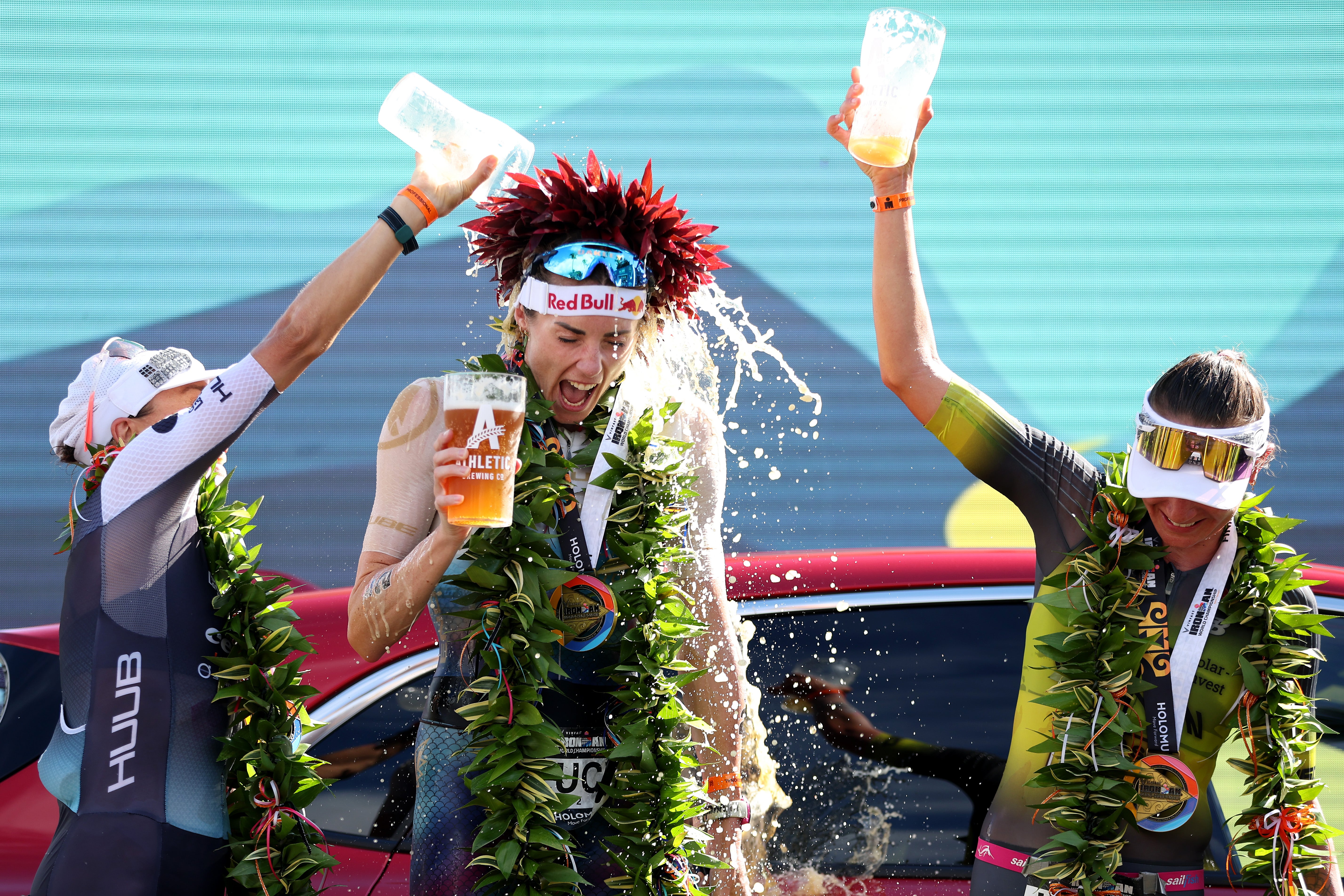
Charles-Barclay had often competed through the pain. She won the Ironman world title after tearing her calf muscle at the start of the marathon, which crept open like a zip so that by the time she finished 26 miles later, it was 14cm long.
So when she came to a halt on London’s Victoria Dock during last year’s T100 race – part of triathlon’s new F1-style championship at glamorous locations all over the world – it had to be bad. Her achilles had blown and she was wheeled away on a golf buggy, past the fans who had come out to see her compete in the flesh. “It was devastating,” she says.
It took nearly a year after her diagnosis to feel fully healthy, but a change in diet – swapping out gluten for rice, chicken and eggs – transformed her body’s resilience. Last weekend, in almost exactly the same spot where she had broken down the year before, Charles-Barclay overtook her rival Kate Waugh to lead the London race. She reached the finish straight alone, with just enough time to hype a giddy crowd inside the ExCel Centre before lifting the finish tape over her head in triumph. Then she collapsed into the arms of her coach and husband Reece, and the tears flowed.
“It doesn’t quite feel real,” Charles-Barclay says, watching back the footage of her winning moment. She is talking to The Independent after a hard morning’s training at the London Aquatics Centre in Olympic Park, four days after that T100 victory. “There’s so much emotion in that video. It feels a little bit weird, like it was like a real ‘moment’, a turning point, proving to myself that I’m back to my old ways and feeling strong again.”
There was a poignancy, too, after Charles-Barclay’s grandfather died in December. “He watched all my races, most of them online because I don’t race in the UK, so London last year was the final race that he actually came to watch me, and obviously I had to pull out. So it was really, really sad. We had all the family there this year apart from him, but it definitely felt like he was there with me.”

Triathlon remains a fringe sport outside of its place in the Olympic Games, but T100 is bidding to change that. Its world tour operates like a Formula One season, with 20 contracted triathletes competing for points and prize money at nine destinations around the world. Races are staged in Miami, San Francisco, Ibiza and Dubai, and the champion at the end of the season scoops £150,000.
The 100km competition – somewhere between a regular triathlon and an Ironman – was launched last year as a ploy to build a more consistent narrative, with the best athletes regularly going head to head. The event has lured plenty of big names including Olympic champions Flora Duffy and Alistair Brownlee, while Alex Yee is considering joining the championship next year, which would be a major coup.
Triathlon is increasingly attracting the executive class, usurping golf as the go-to hobby of the CEO, but it also has a growing grassroots following. Charles-Barclay has amassed a small army of fans with half a million followers on Instagram, and a line of mostly young girls queued up after her London win to get selfies with their hero. Quietly, she is blazing a trail.
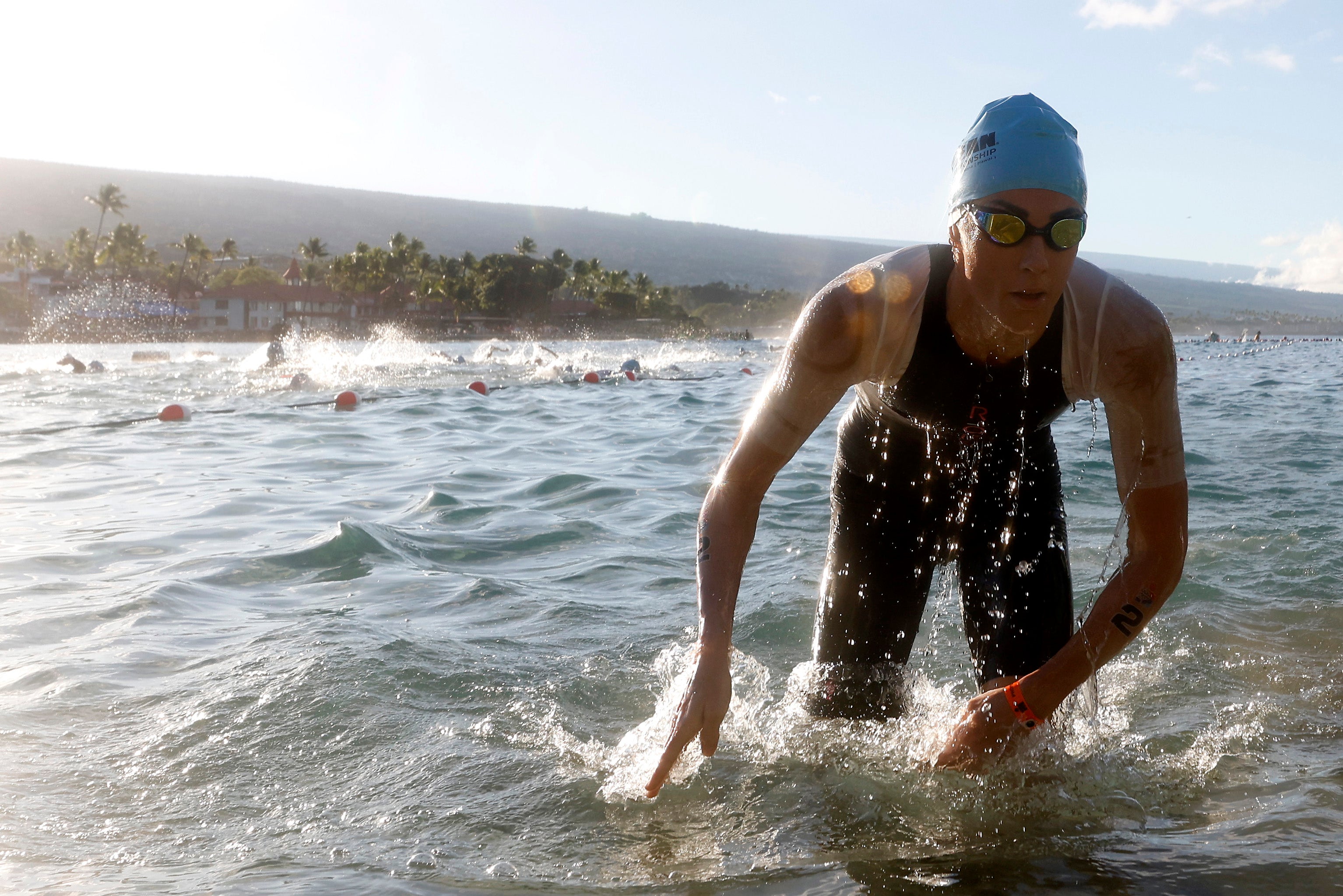
“It makes it all feel so worth it,” she says. “Sport at this level is incredibly tough, you make a lot of sacrifices, you often feel like it’s quite a selfish pursuit training all the time and not seeing family and friends very often. So to feel like you’re doing it more than just for yourself, you’re inspiring others – hopefully those young kids will grow up and try triathlon or get into sport, so it feels a lot bigger than just swim, bike, run.”
Many of her fans were sporting the familiar “battle braids” hairstyle that has become an essential part of the Charles-Barclay image.
“In my first ever triathlon I just decided to braid my hair to keep it out of the way, and then it became a good luck charm and I would braid my hair before every race,” she says. “It’s like I’m going into battle every time that I’m going to line up for a competition, so it’s almost like a confidence thing. It’s inspired young girls to braid their hair, whether it’s sports day at school, or I’ve had young women who sit exams and they’ll braid their hair just to feel a bit more confident doing it. It’s become a real movement that I didn’t expect and every time someone shares it online, it’s just so amazing to see that.”
The Olympics remains triathlon’s biggest stage, and there is talk of the 100km format making its debut at the 2032 Olympics in Brisbane. That may come too late for Charles-Barclay, who has never competed at the Games, and she admits it is frustrating not to get the same recognition as those who race over the shorter Olympic distance.
“We deserve it, we work so hard,” she says. “I definitely don’t do it for [recognition] but I feel like if we were given the platform, with more mainstream media sharing that journey, we’ve got the capacity to inspire so many new people to get involved in this fantastic sport. That’s one of the main reasons why I do it.”
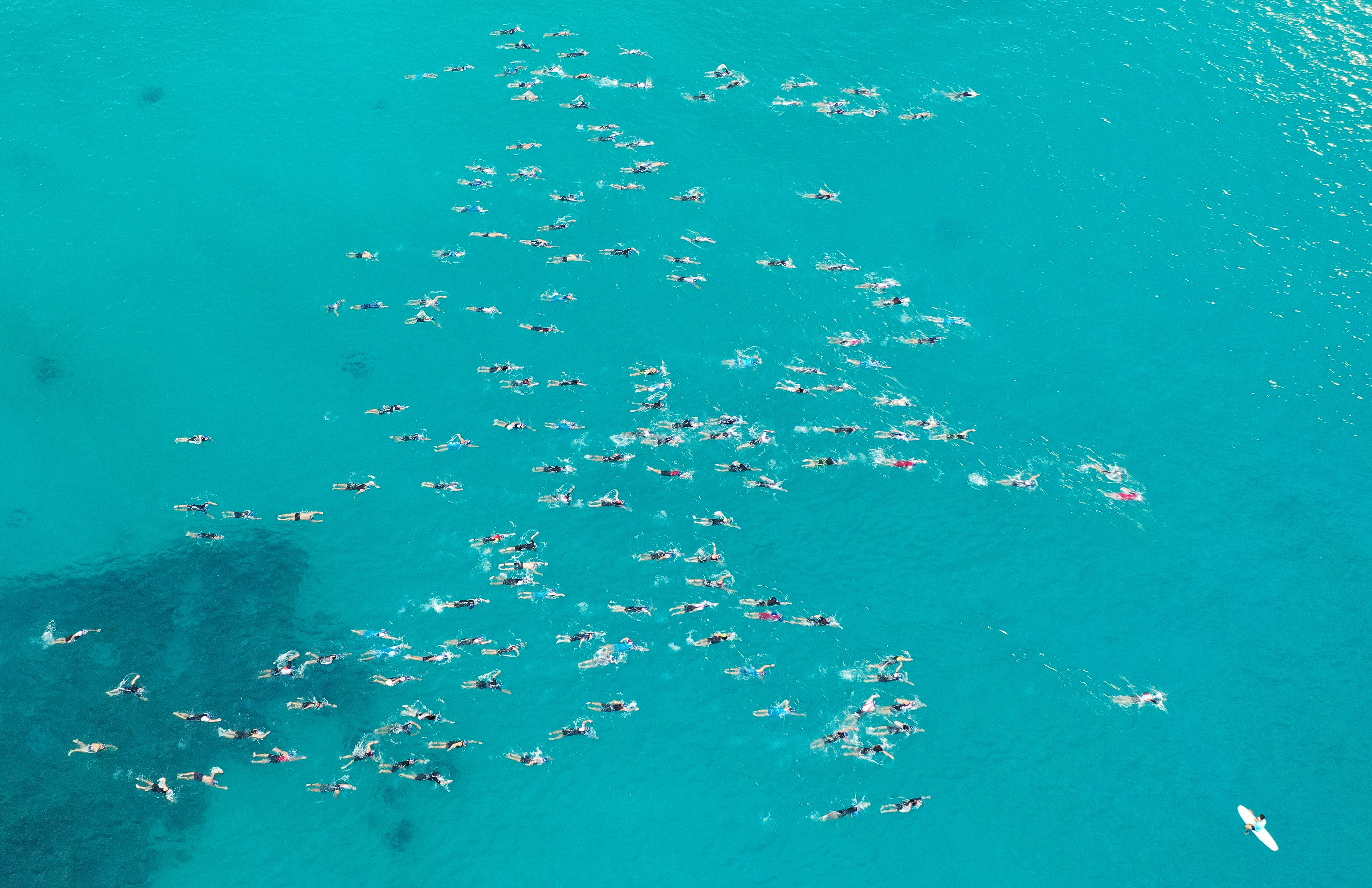
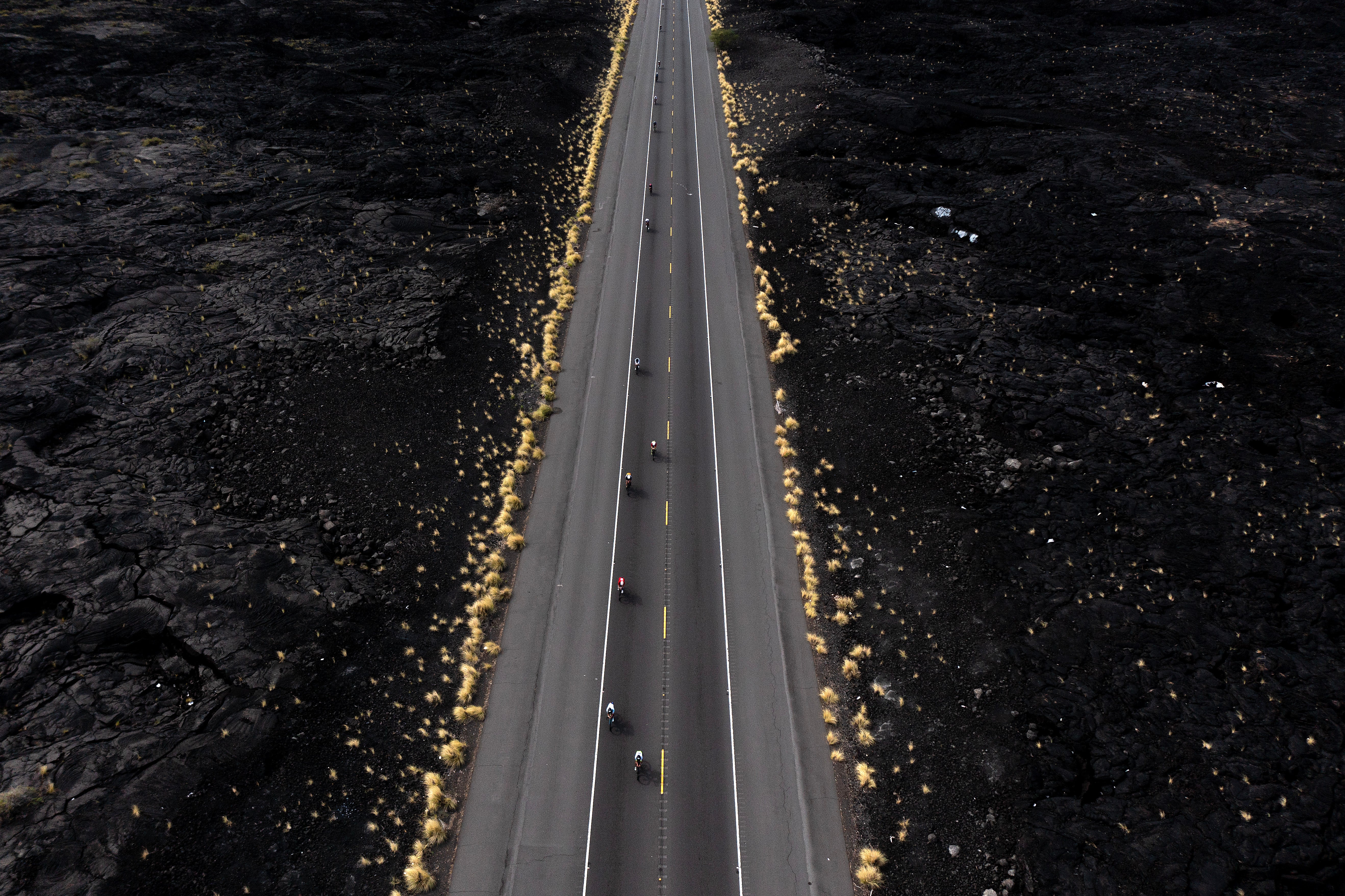
And, of course, to win. Charles-Barclay is heading to Lanzarote for a five-week training camp before returning to Kona in October, the scene of her greatest triumph. She is, technically, the defending champion on that particular course after the World Championship made an unpopular detour to France last year, when she was out injured. It will be back in Hawaii, and so will Charles-Barclay – somehow, after everything, feeling stronger than ever.
Her course record – 8hr 24min 31sec – could even be under threat. “Hawaii’s all about the conditions, so if it’s super windy it will be slow on the bike,” she says. “But I managed to win there with a torn calf, so I do believe I can go faster. I just really want to go there and get the win again.”
Aston Villa vs Newcastle LIVE: Magpies without Isak as Liverpool saga rumbles on
Is Aston Villa vs Newcastle on TV? How to watch Premier League fixture
Transfers live: Man Utd make Baleba decision and Chiesa’s Liverpool future
Derby County vs Coventry City LIVE: Latest Championship updates
Portsmouth vs Norwich City LIVE: Latest Championship updates



